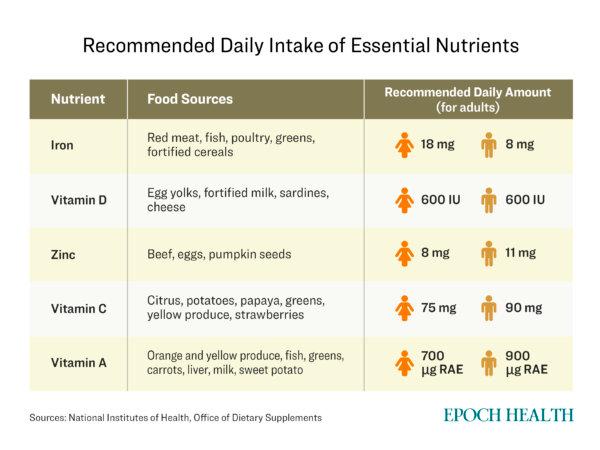Micronutrients Help Protect Against Alzheimer's, Parkinson's, Lou Gehrig’s Disease
Forgetfulness and shaky hands were once considered typical signs of aging. But as degenerative brain diseases like Alzheimer's and Parkinson's skyrocket worldwide, striking people as young as 40, experts warn these lapses may signal something far more sinister—a creeping nutritional deficiency that could steal your memories and mobility.
Not getting enough of certain essential vitamins and minerals could significantly raise your risk for these neurological conditions, according to recent research.
Micronutrient Deficiencies and Brain Disease
Micronutrients are critical components of neurotransmitters, which enable the brain to produce and transmit signals.Micronutrients as a Path to Alzheimer's Prevention
The researchers identified several micronutrients that may help prevent Alzheimer's disease:- The mineral manganese, essential for proper utilization of the neurotransmitter acetylcholine, which transmits signals from the brain to cells throughout the body.
- The minerals selenium, copper, and zinc, which help reduce elevated homocysteine levels associated with cognitive impairment. High levels of this amino acid have been linked to vascular damage, reduced blood flow to the brain, and heightened susceptibility to neurodegenerative disorders.
- Vitamins A, B, C, D, and E, which prevent high homocysteine levels, according to the study.
The Role of Micronutrients in Parkinson's Management
Micronutrient deficiency is associated with increased Parkinson's disease risk, according to the research.For example, low vitamin B6 levels have been linked to a high risk for the disease. Additionally, Parkinson's patients with impaired sense of smell had low dietary vitamin B1 and folate intake for about two years before symptom onset.
Preventing ALS and MS Through Proper Nutrition
Amyotrophic lateral sclerosis (ALS), also called Lou Gehrig's disease, affects the spine and brain, causing a progressive loss of muscle control. There is currently no cure for this ultimately fatal condition.According to the study findings, vitamins D and E benefit patients with the condition, and vitamin D deficiency is a predictive factor for ALS development.
How to Ensure You Get Enough Micronutrients
Food sources of essential micronutrients include those mentioned in the table below:
"Try to consume plenty of fruits, vegetables, whole grains, cereals, and include more nutrient-dense foods [like] salmon, fruits, vegetables, eggs, beans, meat, [and] whole grains," she said.
She recommends filling your plate with healthy fats, protein, and fiber. "I always love to add color to my plate as we eat with our eyes, too," she added. "Think: The more color on your plate, the more variety of nutrients."
Taking supplements is another way to increase micronutrient levels, but it may not be needed if you eat the right foods.
While supplements can help increase micronutrient levels, Ms. Trairatana says a balanced diet should provide sufficient vitamins and minerals without extra supplements. Those concerned about deficiencies can get tested.
Reposted from: https://www.theepochtimes.com/health/micronutrients-help-protect-against-alzheimers-parkinsons-lou-gehrigs-disease-5510918



.png)



Comments
Post a Comment